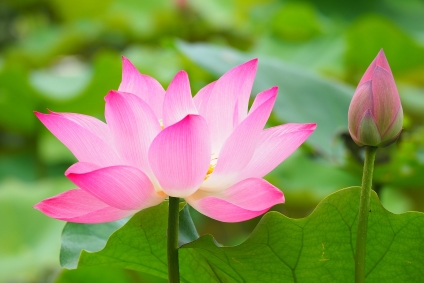Quick Guide to Mindful Living

The purpose of the mindfulness practice is to learn to live our lives mindfully. The idea is to live deeply in the present moment, so we can get more in touch with ourselves, our loved ones, and the rest of the world. Here are some suggestions to help you live more mindfully.
Mindful Activities
One of the ways to develop mindfulness is to do our activities mindfully. There are many things that we do regularly that are so routine that we can do them without thinking. These are excellent opportunities to further our spiritual development, instead of just letting our mind wander off. We can use these activities to bring ourselves back into the present moment, and practice mindfulness.
The way it works is simple. Just choose any activity that you perform regularly that requires little attention, such as washing dishes or folding clothes. Lets use washing dishes as an example. Instead of rushing through it, slow down and pay close attention to what you’re doing. Notice the different sensations, such as that of the water, soap, and the dishes themselves. You may even notice the smell of the dishwashing liquid.
When your mind wanders off, and it will, just keep bringing it back to what you’re doing. Over time, it will get easier. The idea is to train yourself to live in the present moment. Eventually, we want to do all our activities with mindfulness.
I know it may sound boring and unproductive to not think of other things while we’re washing dishes, but it is quite the contrary. Practicing mindful activities will have pretty much the same effect as sitting meditation. It will help calm your body and mind, so you can see the world more clearly, and make better decisions in your life.
If we can learn to live deeply in the present moment, then a whole new world will open up for us. Our whole life will become a new adventure. Now, how exciting is that?
Mindful Eating
Mindful eating is similar to the mindful activities described above, but it has some additional benefits. Not only does it help us develop mindfulness and stay grounded in the present moment, but it also helps us get more in touch with our body and the rest of the world.
By paying more attention to how and what we are eating, we force ourselves to observe our body. This can help us become more aware of how the foods we eat affect our body and mind. For example, some foods may make you feel lethargic, others energetic, and some may produce adverse reactions, such as upset stomach or headache. But we won’t know this unless we’re paying close attention to our eating.
Mindful eating can also help us realize our interconnectedness to the rest of the world. Most of us understand the concept of interconnectedness. We understand that we need other people to survive in this world, but we may not truly appreciate the depth of our dependence on each other.
To practice mindful eating, begin by taking a few mindful breaths. This will help you calm down a bit and focus your attention. Then notice the sensations involved in eating. Notice what the food looks like, and how it smells.
Slowly take your eating utensil and pick up a small portion of food and insert it into your mouth. Notice the sensation and taste as you slowly chew it before swallowing. Resist the temptation to hurry through your meal. Take this time to enjoy your food.
As you eat, take some time to reflect on all the work that went into providing you with your meal. There is much more work involved than simply cooking the meal. Someone had to grow and harvest the food; another person had to ship it to the grocery store; and the grocery store had to make it available to whoever does the grocery shopping in your household.
One practice that can help you eat more mindfully is reciting The Five Contemplations before your meals. This is something I learned while on retreat with Thich Nhat Hanh. It is much like saying grace, but without the religious references. Or if you prefer, you can say grace in the traditional manner. Either way will set the tone for your meal. It will help you treat it with more reverence, and help you reflect on your connection with the rest of the world.
To receive free updates, sign up below for the Blooming Lotus Newsletter and we’ll notify you of new articles, resources, and events:

